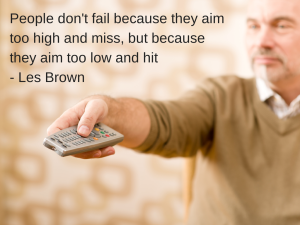In graduate school I spent a lot of time studying the theory of “Just in Time” manufacturing also known as JIT. The origin of JIT is not really known but the carmaker Toyota is credited with popularizing the system.
The idea is that by getting a handle on the production process from beginning to end and understanding that process fully, you can order supplies and have them arrive at the moment they will be used. The advantages of this efficiency are numerous, from not having to create space to store excess parts to no delays in waiting on delivery of needed supplies. Financially it also made sense, you paid for what you needed and used what you had, no overages, no shortages. The JIT concept came to America in the 60s and has been a staple of MBA courses since.
Today I want to talk about another JIT concept and that is Just in Time Learning. Similar to its manufacturing cousin, JIT Learning has many advantages that make it the learning theory of the future (and the future is now). JIT Learning is studying the lessons and concepts that you need to implement at the time of implementation and not earlier.
A quick example, in a year I want to add videos to my blog. I could take the time today to learn about YouTube and Vimeo and uploading video, purchasing lighting and editing, interview ideas, social media sharing and the list goes on and on. But I won’t need that knowledge until next year.
If I study video today I will use up time, which I don’t have, I will likely forget what I learn by the time I need the knowledge and next year the technology will probably be obsolete. JIT Learning says I should wait until next year and learn what I need as I need it. Just in Time Learning is more important today than it ever has been and here is why:
- We have access to so much knowledge- we can’t keep it all. Think of you mind as a computer with a hard drive and some RAM. The hard drive is for long term storage of ideas and the RAM is for ideas that you will use in the near term. The RAM is small and can only hold so much information, the hard drive has a much larger capacity but isn’t as easily accessible. As we continue to add new learning, we move thoughts and ideas from our RAM to our hard drive. The more we add to the RAM, the further the previous knowledge gets pushed into our hard drive. When it comes time to use knowledge previously learned, the further back in your hard drive it resides the longer and more difficult it will take to retrieve. Likely it will require a relearning to remember what you already learned. It is better to learn as needed and then implement it while the knowledge is still in your RAM.
- Not all knowledge is evergreen. You may be familiar with the term evergreen. It refers to the tree that no matter the weather or time of year remains green. This term can also refer to information and knowledge that doesn’t change. Most knowledge today is NOT evergreen. The skills and abilities you learned yesterday may not be applicable tomorrow. The time spent learning something before it is needed may be wasted. The technology you will need to accomplish your task in the future may not exist yet. Learning JIT ensures that you are always learning the most accurate, useful and applicable knowledge. If you learn processes before they are needed you run the risk of those ideas being obsolete by the time you implement them.
- Time is limited. You probably don’t have the time in a day to spend learning things that are not immediately important. The amount of information accessible is moving so fast that the time necessary to learn it all is impossible. If you spend your time learning lessons that “may” be applicable in the future you will not have time (or neglect) the learning and ideas necessary for today. If I spend time learning to create videos for my blog I will run out of time to learn the lessons necessary for my podcast. Time is a zero sum game- time spent here is time taken from there. By prioritizing your time you will realize that JIT Learning is the only efficient way to learn.
- Learning for tomorrow is just avoiding today. One of the reasons that many people spend time consumed with the lessons of tomorrow is so they can avoid taking action today. Creating a podcast is hard so I can avoid that struggle by spending time learning about tomorrow’s videos. Doesn’t make sense does it?
- Knowledge is easily accessible. Why spend energy and brainpower remembering something you can easily Google? I could memorize pi to the 50th digit (maybe) but why? I could also just look it up when I need it. As information becomes more accessible the need to memorize it becomes less important.
The secret to progressing forward and creating success in your life and in your work is to do the things necessary for today….now. Knowledge is readily accessible and should be consumed and used at the time of implementation. Just in Time Learning is productive and efficient learning.
Question: What is your secret to Just in Time Learning? Leave your comments below or by clicking here.
Free: 5 Easy Steps to Retrieve Your Amazon Kindle Highlights



















